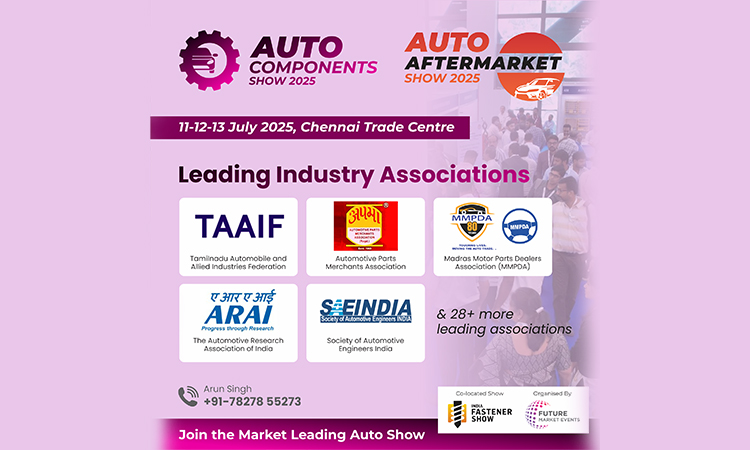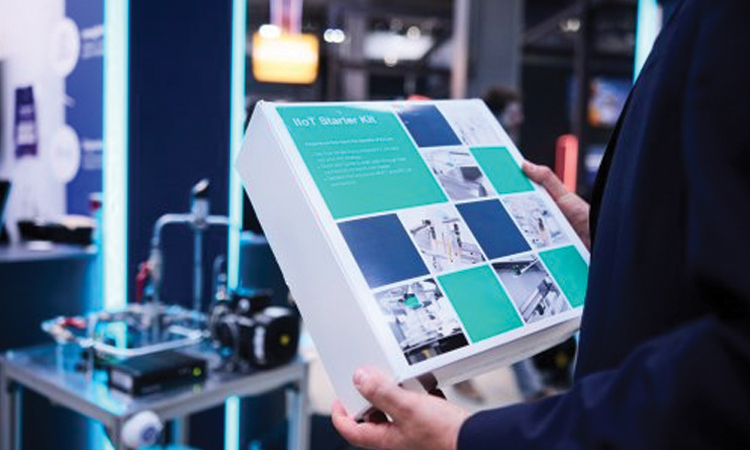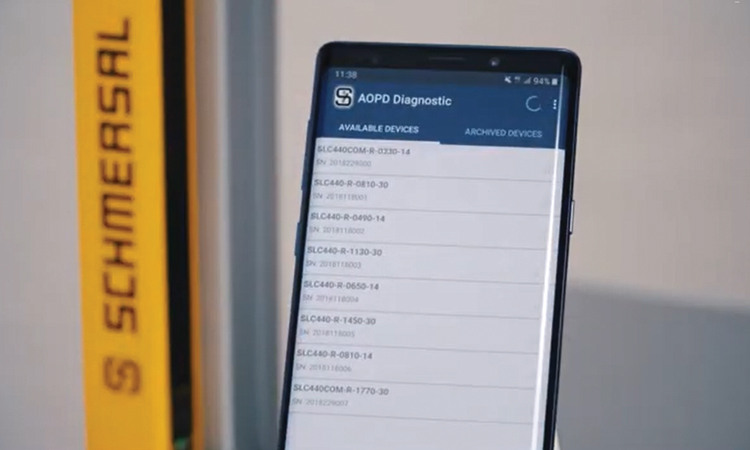Leading Industry Associations Unite to Support Auto Components…
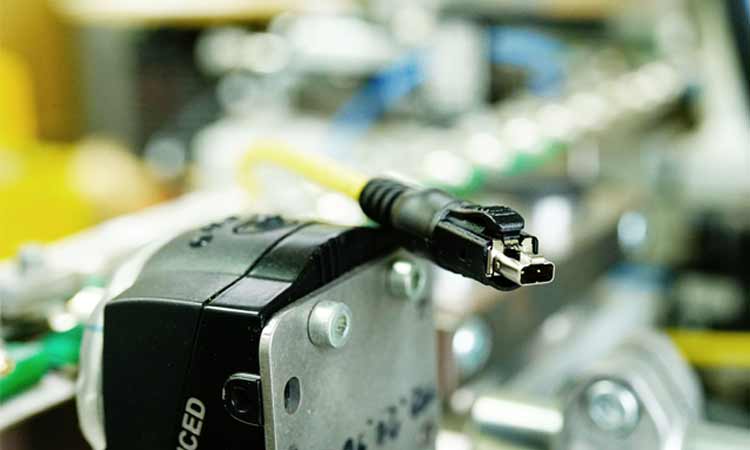
Connectivity+: Powerful connectivity of the future, HARTING Technology Group | Engineering Review
The HARTING Technology Group is presenting itself with numerous technological highlights at this year’s HANNOVER MESSE digital Edition (12 to 16 April 2021). “At HARTING, we are designing the powerful connectivity of the future and we call it Connectivity+,” as CEO Philip Harting stated.
The CEO expressed his satisfaction with the course of the 2020/21 business year to date: “Sentiment in the global economy worldwide is gradually brightening. Many countries have made significant progress in combating the Corona pandemic. In this respect, we are also experiencing a slight upturn in business across sectors, markets and products,” the CEO noted. “We are now expecting sales growth in excess of five per cent,” Philip Harting stated, thereby substantiating his forecast from the annual press conference in December 2020. At the time, the CEO had predicted growth in the single-digit range.
Social and technological trends shaping the future core business
The technology group is focusing on answers to the three global societal megatrends of sustainability, demographic change and (de-) globalisation. These societal megatrends are closely intertwined with the technological megatrends of autonomy, the digital twin and modularisation. “These trends are going hand in hand with new, comprehensive requirements for the connectivity of the future,” explained Dr.-Ing. Kurt D. Bettenhausen, Director of “New Technologies and Development” at HARTING. “Under the term of Connectivity+, we are grouping forward-looking topics such as DC power supply in industry, electromobility and new industrial ecosystems such as Single Pair Ethernet (SPE). With these and other topics, we will be playing a trend-setting role in shaping a powerful infrastructure for the digitalisation of industry,” Bettenhausen emphasised.
Sustainability and energy efficiency are concrete future topics for HARTING
“Sustainability and energy efficiency are topics for the future that HARTING is addressing, and on the basis of which we are deriving our solution requirements,” as Norbert Gemmeke, Managing Director of HARTING Electric stated. In addition to environmentally friendly e-mobility, Gemmeke cited renewable energies and the topic of DC power supply in this context. Many areas relevant for renewable energies and storage technology are DC-based.
With a focus on sustainability and climate protection, DC technology is enormously important in today’s industry, because it is needed when regenerative energies are increasingly deployed and energy recovery from the plant is to lead to greater energy efficiency. As DC technology enables consistent load management, peak loads are avoided and a balance is created between generation, storage and consumption. Consequently, HARTING is participating in the DC-INDUSTRIE cooperative project, which consists of 40 industry partners. “By developing the appropriate connectivity, we will enable users to save energy and thereby directly reduce energy costs,” as Gemmeke added.
Energy storage market gaining increasing importance
The energy storage market is becoming increasingly important. Energy storage can reduce power demand peaks, which in turn reduces costs. In addition, in parts of the world where grid outages are more frequent, a DC infrastructure with energy storage systems would enable bridging of outages. The sustainable use of renewable energies can only be achieved through energy storage systems, as they enable the time-delayed, demand-oriented use of electricity generated from renewable energies.
Connectors accelerate the configuration, set up and operation of energy storage systems based on battery modules. Joining forces with partners, HARTING has developed various solutions that are making significant contributions to sustainability. Han® S is one such ideal solution for the front wiring of battery modules in energy storage systems.
New modules enabling future-proof applications
Greater capacity, less weight – that is the decisive development goal for energy storage systems. Today’s systems often involve power ratings of 200 A/800 V DC. Future applications with higher energy densities will require transmissions of 300 A/1200 V DC and more. In order to meet these requirements with suitable interfaces, HARTING has developed the Han® 300 A module. Featuring touch-safe contacts, it can be directly connected to the busbar or integrated into storage drawers.
The Han® Shielded Power Module is perfectly suited for shielded applications and is therefore ideal in connecting frequency-controlled drives. With the Han® Pneumatic Double Module, a larger connection range of 8 or 10 mm for compressed air transmission, e.g. for valve terminals will be launched on the markets in the current quarter.
The M12 connector format is also a new addition to the Han-Modular® range. Two connectors, X- or D-coded, fit into one module respectively. This allows 10 Gbit/s Ethernet to be integrated into a modular interface in a particularly compact. space-saving manner.
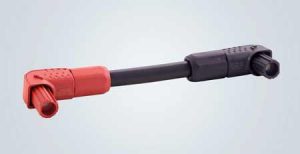
Increased flexibility and space savings in the control cabinet
With the new Han® L32 B size, HARTING now also offering greater flexibility in selecting the right rectangular connector for conventional industrial applications, such as control cabinets. With a single L32 B connector, two interfaces of size 16 B can be inserted into one housing contour, saving more than 40% installation space. Moreover, this results in a smaller number of interfaces, requires fewer components and therefore significantly reduces the time needed to assemble interfaces.
Industrial transformation needs digitalisation
“Industrial transformation needs digitalisation”, as Ralf Klein, Managing Director of HARTING Electronics explained. Today, Ethernet is already the predominant communication medium in industrial automation and will penetrate into the last areas of the automation pyramid in the future. HARTING is creating the appropriate infrastructure for these developments. The aim is to be able to offer customers a reliable, miniaturised and resource-saving infrastructure from the cloud down to every individual sensor. In this way, HARTING is actively supporting industry’s path to the IIoT. However, innovative answers in terms of size, modularity and standardisation of components alone will not be enough, which is why HARTING, since 2017, has been focusing on the development of the entire single pair Ethernet ecosystem in the development, standardisation and portfolio structure of the T1 industrial interface in accordance with IEC 63171-6. Only with all the necessary components and strong partners accompanying the new physical layer SPE will it be possible to realise the technological basis in the form of single-pair copper cabling extending to the field level.
In the meantime, as part of the SPE Industrial Partner Network e.V., HARTING is driving this complete ecosystem forward together with 47 other market leaders. “Setting standards together with partners is an important point for the sustainability and success of a solution. The SPE network is the leading global network,” as Ralf Klein emphasized.
All for PCB
The second major highlight is the completely new flexibility in the field of PCB connectors. At HANNOVER MESSE 2021, HARTING will be demonstrating an enormous reduction in the workload for device developers – regardless of whether this involves rapid prototyping, small series or an entire product series.
Thanks to the new, modular har-modular®connector for the PCB, the technology group is offering developers a modular construction kit with a trillion possible combinations. With the help of the online configurator, developers can select module components for the lifelines of data, signal and power themselves and combine them entirely optionally. From batch size 1, every conceivable configuration can be ordered. The solution is then customised and delivered. This makes it a great deal easier to adapt interfaces to a PCB layout and a specific task, saving time development costs- and thereby simplifying the ever shorter process of creating new industrial devices.
Under the auspices of miniaturisation, the flexible transmission of all lifelines to the next PCB has also been consistently expanded in the miniaturised har-flex product series. Consequently, users can not only choose incrementally between 6-100 signal contacts and different heights for mezzanine applications. Thanks to the new variants for power, hybrid signal and power variants and the Micro CardEdge series for data, HARTING is offers an impressively space-saving solution for all lifelines in miniaturised applications.
“All for PCB” stands for concrete solutions for the trends of digitalisation, miniaturisation and modularisation in PCB design. “We are redefining flexibility on the PCB,” as Ralf Klein stated.








